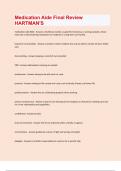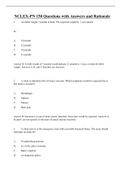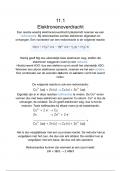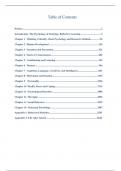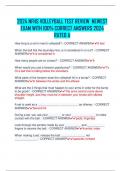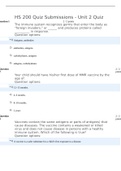Tentamen (uitwerkingen)
FOR2602 Exam pack 2024 (Forensic methods and techniques) questions and answers
- Vak
- Instelling
FOR2602 Exam pack 2024 (Forensic methods and techniques) questions and answers With accurate answers and assurance that they are in the exam.
[Meer zien]






